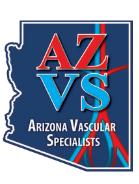
Carotid Artery Disease
The carotid arteries are the main arteries in your neck that supply blood to your brain. A substance called plaque accumulates inside your arteries as you age. If too much plaque builds up in your carotid artery, it can cause the artery to narrow (carotid stenosis). Small clots can form, then break off and travel to the brain, causing a minor or major stroke.
Relatively common
Up to 3% of individuals older than 65 have carotid artery disease. Your risk increases as you age, and is heightened if you have a history of smoking, high blood pressure, high cholesterol, diabetes or heart disease. Carotid stenosis is responsible for up to one-third of all strokes. Stroke causes 1 in every 15 deaths. About 700,000 strokes occur every year, usually in men.
CHRONIC, NEEDS MONITORING
If you develop carotid artery disease, you will need regular carotid artery ultrasound tests
Symptoms
MAY BE ABSENT
Most people with carotid artery disease, even with severe blockage, experience no symptoms. The condition is found in a routine physical or ophthalmological examination, or is found following a stroke.
IN RARE CASES
Very rarely, carotid artery disease may cause ringing in the ears or fainting due to decreased blood flow to the brain. Neck pain is not a symptom of carotid artery disease.
WEAKNESS, NUMBNESS, SLURRED SPEECH
The first signs of carotid artery disease may be a stroke, mini-stroke or TIA symptoms, such as weakness or numbness on one side of your body. You may also experience slurred speech or facial drooping.
The most common cause is a build-up of plaque in the carotid arteries due to multiple risk factors, such as a history of smoking, high cholesterol, high blood pressure and diabetes. This is the same type of plaque that forms in the heart and causes heart attacks. In rare cases, carotid artery may narrow due to inflammation.

Diagnosis
Routine physical exams
Include the physician using a stethoscope to listen to your heart and certain blood vessels. A whistling sound or “bruit” coming from the carotid artery may indicate plaque is building up inside the artery and lead your doctor to recommend you see a vascular surgeon. May also be detected during an eye examination if your doctor detects a plaque in the artery that supplies the retina.
SEE A VASCULAR SURGEON
You will be asked questions about symptoms and medical history, including questions about family members. The vascular surgeon will also perform a physical exam.
TESTS MAY BE RECOMMENDED
The most common and non-invasive diagnostic test is a non-invasive carotid artery duplex scan that uses two kinds of ultrasound. The test can determine whether the artery is narrowing and if so, provide an accurate estimate of severity.
Alternative radiological tests are sometimes used to determine the presence and degree of any narrowing. These include a computerized tomography (CT) scan, magnetic resonance angiography (MRA) or angiogram.
Treatments
is given to reduce the possibility of stroke or recurrence of stroke. Specifics depend on the degree of artery narrowing.
MEDICATION
often a combination of medications, can help slow the progression of carotid artery disease. Aspirin, and medications that lower your cholesterol and blood pressure are commonly prescribed when the degree of narrowing is less than 50-60%. Medications may need to be adjusted as the disease progresses.
SMOKING CESSATION
is important for managing carotid artery disease and for your overall health.
SURGERY may be recommended. If the degree of narrowing is more than 60%, in addition to medication you may benefit from a carotid endarterectomy or carotid angioplasty and stenting.
Here are ways to slow the progression of carotid artery disease:
Ask your vascular surgeon about medications that may help control the disease, including medications that can reduce your blood pressure and blood cholesterol, and make your blood less sticky.
Following a healthy diet and eat in moderation.
Exercise safely and more frequently through non-strenuous activity, such as walking.
If you smoke, work with your vascular surgeon to find a smoking cessation program that will work for you.


